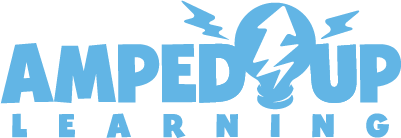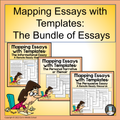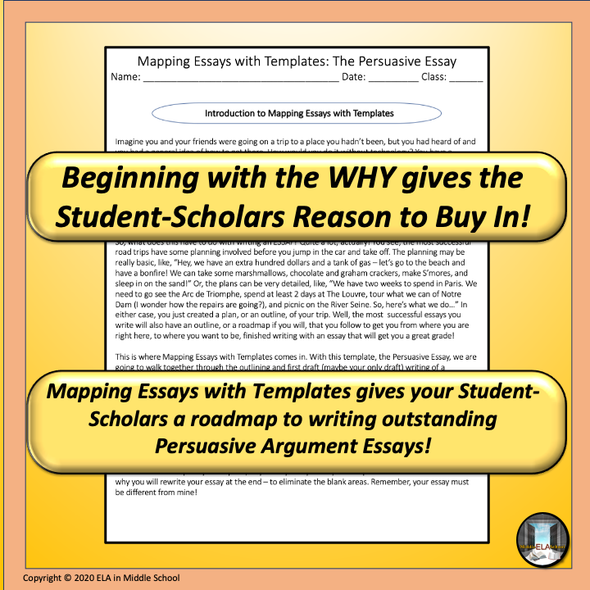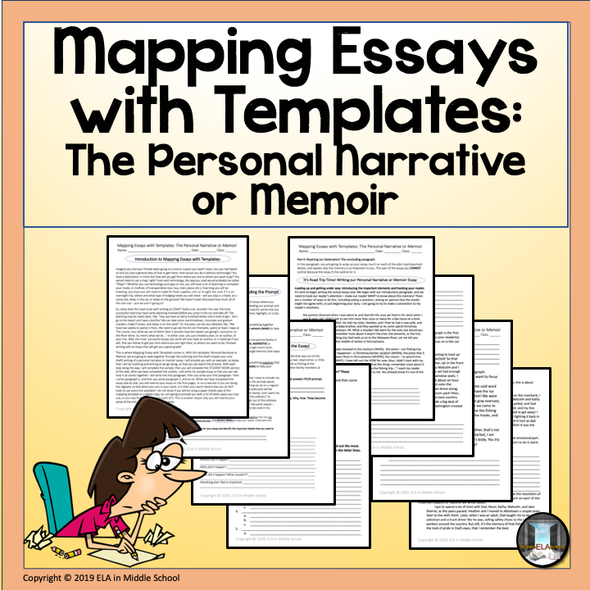Description
Thank you for your interest in Mapping Essays with Templates: The Bundle from ELA in Middle School! The Bundle currently includes our Mapping Essays with Templates: The Informational Essay; The Personal Narrative or Memoir Essay; and The Persuasive Essay. We will be adding more as we develop release additional essay types’ Templates! Buy purchasing the Bundle now, you will receive the new templates FREE as they are added!
We developed this new format template for writing essays to replace our old essay writing line, and we feel it has been greatly improved! Additionally, it is in a digital format that can be used for remote or distance learning, or printed for in-person, in-class teaching!
If you ask students what their least favorite part of an ELA class is, they will usually tell you that it is writing essays. So, I developed our Mapping Essays with Templates line to provide our student writers with a set of roadmaps to guide their journey as they become proficient essayists. While it is primarily designed for the Middle School writer, we were fortunate to have the opportunity to do a test run with some gifted and talented students in the 4th and 5th grades, and they assured us that they were able to follow along without trouble, so it can easily be used with Elementary students as well as struggling High School writers.
Each of the different Mapping Essays with Templates begins with the WHY. Specifically, why are we using this format and writing package? After all, handing a student a 12-page packet, or having them open a 12-page fillable PDF, seems very intimidating! So, when they understand that a lot of the information in the packet is designed to DEMONSTRATE to them how to create an essay, it alleviates a lot of the concern!
Each Template is broken into three major sections: outlining and preparation; writing a first draft; and then writing a completed and (hopefully) polished essay. The outlining and preparation section begins with a quick analysis of a sample writing prompt, a take on one that our students see all too often, but that they still struggle with:
SAMPLE PROMPT: The Supreme Court ruled that random drug testing is constitutional for high school students involved in athletics and other extracurricular activities. Write an essay that provides an argument for or against random drug testing of all students. Include persuasive and argumentative language in your essay.
We do a fast analysis of what the sample prompt is asking for, then space is provided for the student to write/enter the prompt you have given them and instructions for how to analyze it. This is a great chance for an “I do, We do” lesson if you are doing this in person or in an online meeting format such as Zoom or Google Meets! We then walk through how to create a fast and simple outline for an essay.
The second major section is on the actual writing of a first draft. As I explain what goes into each paragraph, I demonstrate by writing a persuasive argument of my own that answers the prompt. This is a REAL essay that I am writing as I walk the students through the process! In addition to sharing my experience with the students (which makes a connection to them), I also analyze in the first paragraph a successful divided hook, and WHY I choose to use this. In the body paragraphs we look at different forms of persuasive language, and also natural transitions to move their writing from formulaic writing patterns of transitions. There is nothing wrong with using those formula transitions, but let’s be honest – our kids can do better!
Finally, I trick them. The last three pages are for the students to rewrite their essays, allegedly to “get rid of what I did” and they can turn it in. This is a perfect opportunity for you to have them edit and revise, or peer edit for revisions! Feel free to grab our FREE editing and revising checklists for this!
You will find that there are three fillable PDFs included in each product file. The first one has my essay prewritten in the body. The second is set for you to enter your own essay, either with your students or before sharing with them. If you choose this one, enter your essay, save the form, and then share it with students. WARNING: THIS CANNOT BE PROTECTED! Students will be able to edit the form. Therefore, I recommend this ONLY for in-person hard copy packets, as you can enter your essay ahead of time and then print the complete packet. The third PDF is entitled Student Final Draft FORM, and is three pages prepared for your students to use.
Thank you again for your purchase of this resource, and for your trust in ELA in Middle School to provide you and your student-scholars with quality resources that work! Please be sure to leave feedback at our store, and to let your friends and colleagues know how well this resource worked for you and your student-scholars!
Sincerely,
Matthew and Suzanne
ELA in Middle School
ELA in Middle School proudly uses a toon from Ron Lieshman’s Digital Toonage “Teens” collection on the cover
Aligned to TEKS: 7.14, 7.18, 8.14, 8.18 (sections A and B for each)
And Adopted 2017 Standards (in effect 2019): Strand 6, 110.23 and 110.24 inclusive
Aligned to CCSS: ELA.Literacy.W.7.3; ELA.Literacy.W.7.10; ELA.Literacy.W.8.3; ELA.Literacy.W.8.10.
This lesson is appropriate for grades 7-8.
ELA in Middle School
Become a follower to receive updates about new products as we add them.
LICENSING TERMS: By purchasing this product, you own a license for one teacher only for personal use in your classroom. Licenses are non-transferable, meaning they cannot be passed from one teacher to another. No part of this resource is to be shared with colleagues or used by an entire grade level, school, or district without purchasing the proper number of licenses.
COPYRIGHT TERMS: Copyright © 2020 by ELA in Middle School. Please note – all material included in this resource belongs to ELA in Middle School. By purchasing, you have a license to use the material, but you do not own the material. This resource, or any portion of this resource, may not be uploaded to the internet in any form, including classroom/personal websites or network drives, unless the site is password protected and can only be accessed by students—no other teachers or anyone else on the internet.


















